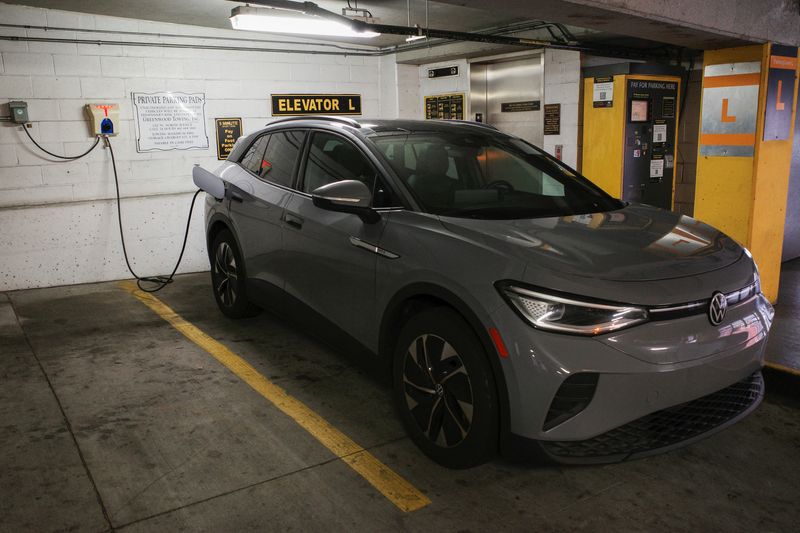By David Shepardson
WASHINGTON (Reuters) – A group representing major automakers including General Motors (NYSE:GM), Toyota Motor (NYSE:TM) Corp, and Volkswagen (ETR:VOWG_p) urged President-elect Donald Trump to retain key tax credits for electric vehicle purchases and take steps to speed deployment of self-driving cars.
The Alliance for Automotive Innovation in a previously unreported Nov. 12 letter to Trump also raised concerns about vehicle emissions rules citing “federal and state emissions regulations (particularly in California and affiliated states) that are out-of-step with current auto market realities and increase costs for consumers.”
The automakers did not specify how they want the rules revised but said they support “reasonable and achievable” emissions regulations. The Trump transition team did not immediately comment.
The letter, signed by the group’s CEO John Bozzella, said automakers face unfair competition “from heavily subsidized electric vehicles and technologies exported from China” and also noted that China was implementing a regulatory framework to support deployment of self-driving vehicles.
The group also asked Trump to reconsider rules finalized in April requiring nearly all new cars and trucks by 2029 to have advanced automatic emergency braking systems. The group earlier said the rules are “practically impossible with available technologies.”
Last week, Reuters reported that Trump’s transition team wants to kill the $7,500 consumer tax credit for electric-vehicle purchases – a move that would likely slow an already stalling U.S. EV transition.
This week, Reuters reported Trump transition team plans to target federal regulations championed by President Joe Biden that aim to make automobiles more fuel-efficient and incentivize a shift toward EVs.
The move appears aimed at satisfying a Trump campaign promise to “end the EV mandate,” and would mirror a similar move during the first Trump administration to rollback Obama-era vehicle-efficiency rules.
Although no such “EV mandate” exists, the Biden administration regulations would effectively require automakers to shift at least 35% of production to EVs in order to meet 2032 requirements, and encourage a gradual phase-out of the production of vehicles that run on fossil fuels.



